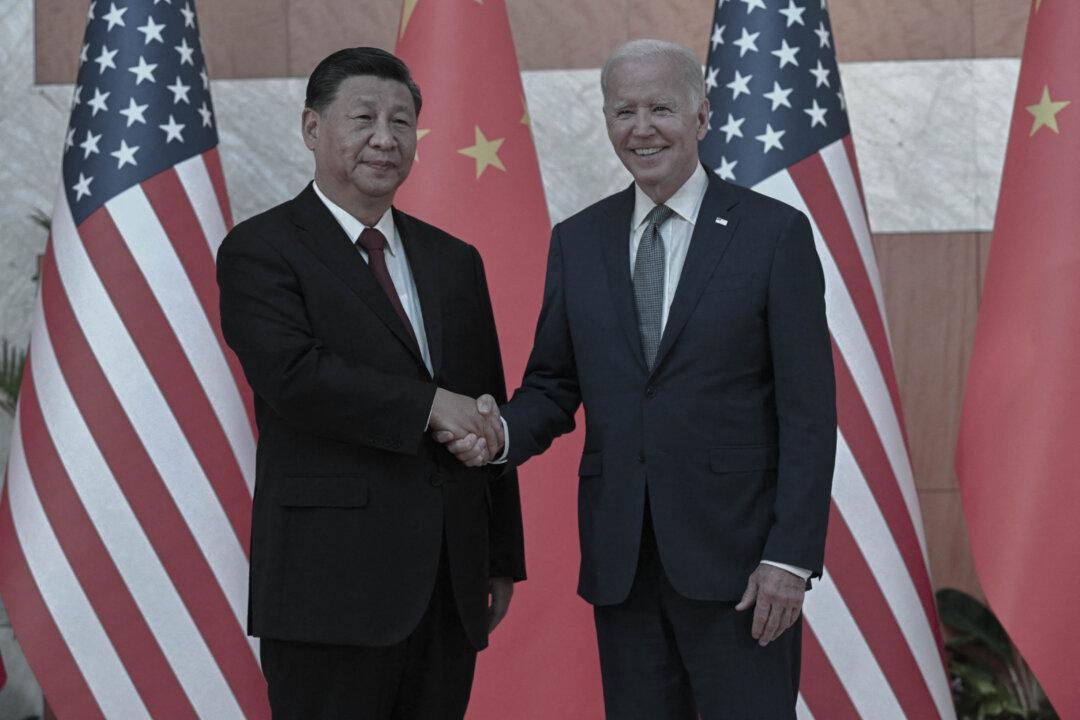U.S. President Joe Biden and Chinese leader Xi Jinping spoke positively about bilateral ties on Nov. 14 during their first in-person meeting since Biden took office in 2021.
The long-awaited meeting, on the sidelines of the Group of 20 summit in Bali, Indonesia, came amid deteriorated Sino–U.S. relations over a series of issues, including the Chinese regime’s rampant technology theft, human rights abuses in Xinjiang and Hong Kong, and its aggression against Taiwan.





